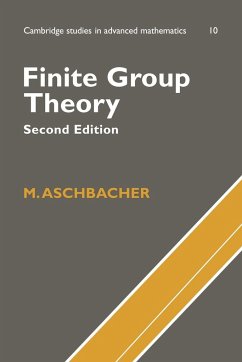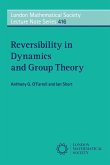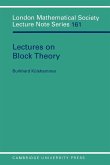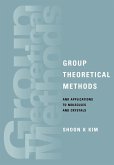During the last 40 years the theory of finite groups has developed dramatically. The finite simple groups have been classified and are becoming better understood. Tools exist to reduce many questions about arbitrary finite groups to similar questions about simple groups. Since the classification there have been numerous applications of this theory in other branches of mathematics. Finite Group Theory develops the foundations of the theory of finite groups. It can serve as a text for a course on finite groups for students already exposed to a first course in algebra. It could supply the background necessary to begin reading journal articles in the field. For specialists it also provides a reference on the foundations of the subject. This second edition has been considerably improved with a completely rewritten Chapter 15 considering the 2-Signalizer Functor Theorem, and the addition of an appendix containing solutions to exercises.
Table of contents:
1. Preliminary results; 2. Permutation representations; 3. Representations of groups on groups; 4. Linear representations; 5. Permutation groups; 6. Extensions of groups and modules; 7. Spaces with forms; 8. p-Groups; 9. Change of field of a linear representation; 10. Presentations of groups; 11. The generalized Fitting subgroup; 12. Linear representations of finite groups; 13. Transfer and fusion; 14. The geometry of groups of Lie type; 15. Signalizer functors; 16. Finite simple groups.
Finite Group Theory develops the foundations of the theory of finite groups with an emphasis on the finite simple groups. It can serve as a text for advanced undergraduates or graduate students in mathematics and as a basic reference for research mathematicians.
The book provides the basic foundations for the local theory of finite groups, the theory of classical linear groups, and the theory of buildings and BN-pairs.
Hinweis: Dieser Artikel kann nur an eine deutsche Lieferadresse ausgeliefert werden.
Table of contents:
1. Preliminary results; 2. Permutation representations; 3. Representations of groups on groups; 4. Linear representations; 5. Permutation groups; 6. Extensions of groups and modules; 7. Spaces with forms; 8. p-Groups; 9. Change of field of a linear representation; 10. Presentations of groups; 11. The generalized Fitting subgroup; 12. Linear representations of finite groups; 13. Transfer and fusion; 14. The geometry of groups of Lie type; 15. Signalizer functors; 16. Finite simple groups.
Finite Group Theory develops the foundations of the theory of finite groups with an emphasis on the finite simple groups. It can serve as a text for advanced undergraduates or graduate students in mathematics and as a basic reference for research mathematicians.
The book provides the basic foundations for the local theory of finite groups, the theory of classical linear groups, and the theory of buildings and BN-pairs.
Hinweis: Dieser Artikel kann nur an eine deutsche Lieferadresse ausgeliefert werden.








